When SF District 5 Supervisor Bilal Mahmood, 38, swiped right in December 2022, it wasn’t on a face so much as a feeling. On Hinge, amid selfies and sunsets, one of Cynthia Wu’s videos showed only the back of her head as she repaired a refrigerator drawer. “It was different,” he said. “You could see her personality — how she learns, how she fixes things.” Her profile also mentioned zero waste.
He sent a $3 digital rose and mentioned his climate legislation. “What a flex,” recalled Wu, laughing. Her reply: “I voted for you.”
Wu, 34, who was a product manager at Google X, recognized Mahmood from his 2022 run for state Assembly in District 17. Her former manager at Google was married to Mahmood’s cofounder at ClearBrain, an analytics startup they sold in 2020, and had posted near-daily endorsements, which made their way to Wu’s Instagram feed.

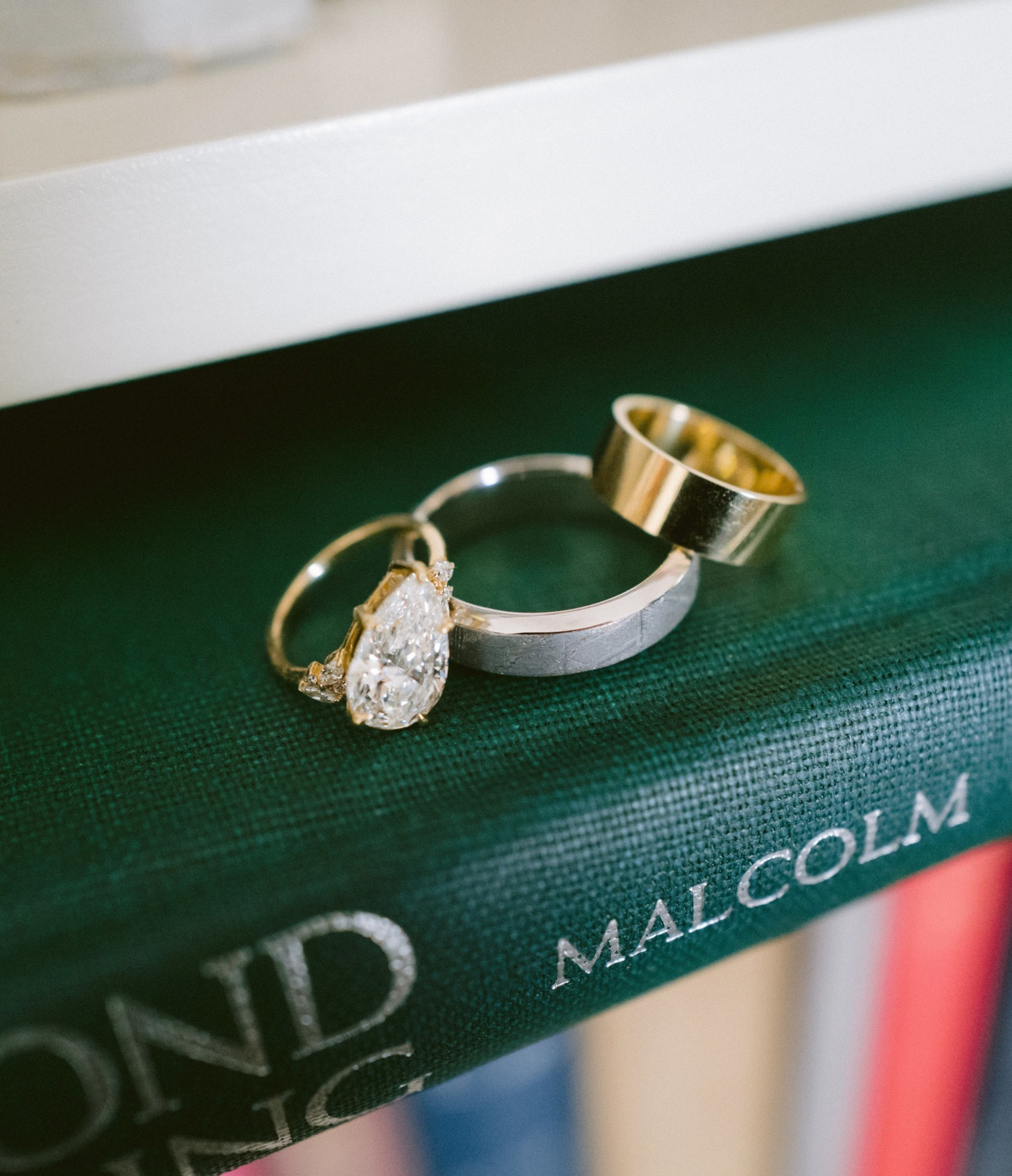
Sitting in the cafe inside the Asian Art Museum, the location of their first date, Mahmood reflected on that time. “I lost the race,” he said. “But I found Cynthia.”
Love had been a long time coming. After being diagnosed as autistic in 2021, Mahmood came to the conclusion that maybe it just wasn’t in the cards for him. He had never called anyone his girlfriend.
But after losing the Assembly race, Mahmood let friends nudge him back onto the dating apps. He signed up for Bumble and Hinge. There were lots of first dates, but he never clicked with anyone. “I just wasn’t getting that resonance.”
His life had been a to-do list: build a company, start a nonprofit, run for office, serve the city. “I spent a lot of my time thinking, ‘I need to save the world,’ but I had to do it alone.” Romance, he assumed, was the cost of purpose. “I didn’t think I was capable of certain happiness or joy,” he said. “Or that I deserved it.”
Then he found Wu.
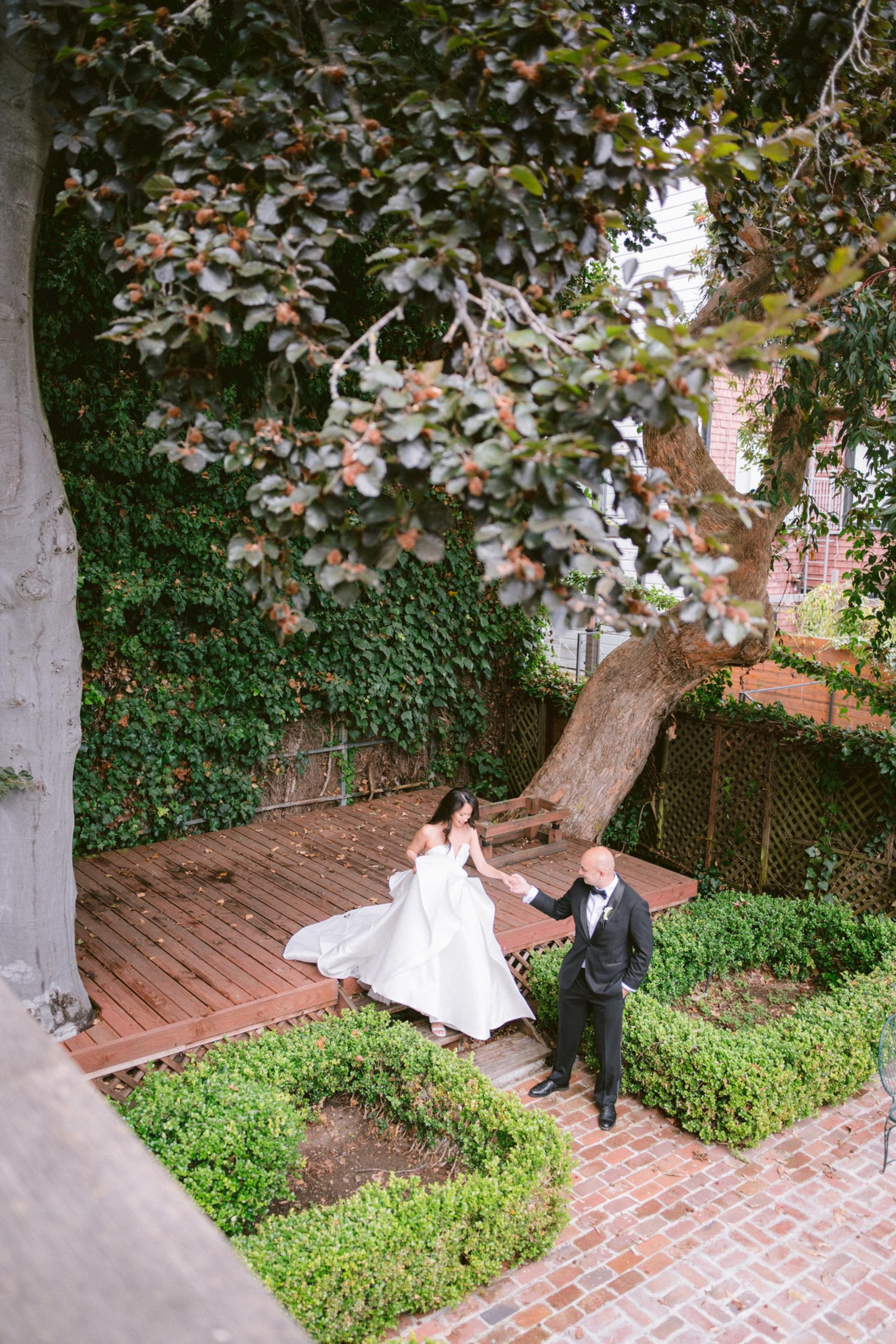
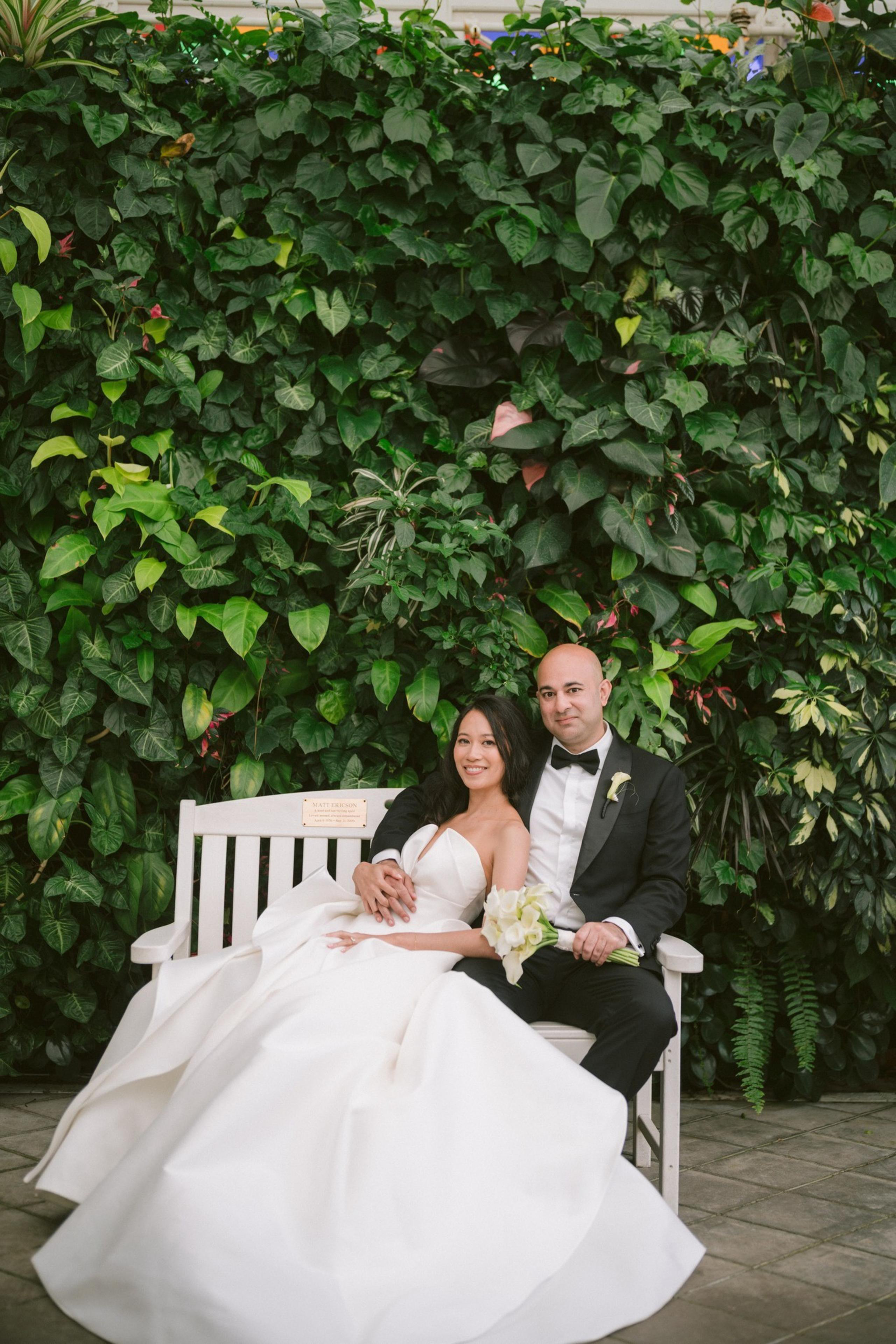
On their first date, in January 2023, they listened to a talk by Gene Luen Yang, author of the graphic novel “American Born Chinese.” Wu arrived 15 minutes late — she’d mixed up the dates and had been en route to Ikea when Mahmood’s “I’m here” text flashed. She made a frantic U-turn and dashed to the lecture.
Afterward, they joined the long line for autographs. Wu didn’t have a copy of the book, and the bookshop was sold out, but Mahmood produced a spare from his tote. “He’d brought two,” she marveled.
After the date, Mahmood couldn’t stop thinking about her. “She was so pretty, but she was also really quirky,” he said. He was excited to see her again. Wu was more tentative. “In San Francisco, the odds are good, but the goods are odd,” she said. “I was ready to meet someone in it for the long haul — a committed, good person with shared values.”
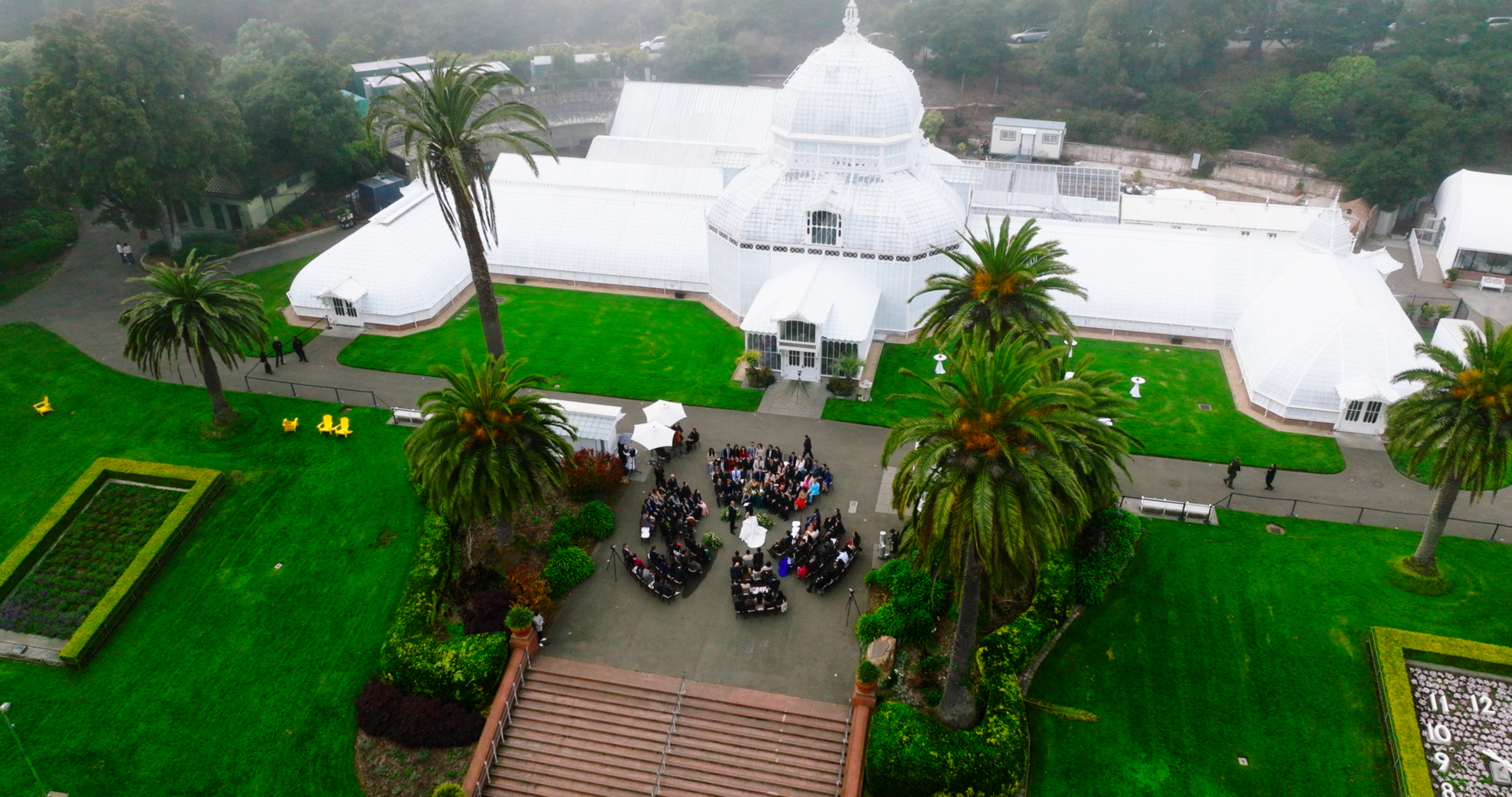
A week later they met again, under the glass dome at the Conservatory of Flowers in Golden Gate Park. Wu talked about her 150 house plants, and Mahmood picked up some new terminology. “I learned about the word ‘crunchy,’ how Cynthia’s really ‘crunchy’ and ‘granola.’”
As they wrapped, Mahmood tried something he’d rarely risked on a date: honesty about how his mind works. “Sometimes I take things very literally,” he said. “You have to be very explicit with me.” Wu nodded, paused, then asked, “When did you know you were on the spectrum?” He hadn’t told her he was autistic, but she understood. “I’ve watched ‘Love on the Spectrum,’” she told him.
Weeks later, after a beach day, she laced her fingers through his. “For the first time, it felt comfortable,” he said. “Touch has always been difficult for me. … It felt very warm and loving.”

By Valentine’s Day 2023, they were exclusive. Four months in, Wu told him she loved him. He cried, then said it back. “I could tell he loved me,” said Wu. “But I’m his first girlfriend. So I was just, ‘I’ll say it first.’”
In January 2024, (opens in new tab) Mahmood announced his bid for Board of Supervisors, representing District 5. The couple made rules for the campaign trail. Wu would avoid most political events: “You be as involved as you want, or not at all,” he told her. But then she kept showing up anyway, at every debate and at countless evening door-knocking sessions. Wu, who speaks Chinese, often translated at the door. “I would video it and send it to her mom,” Mahmood said.
Afterward, they’d slip into whatever mom-and-pop spot was open and record a short for their Instagram mini-series “Bites With Bilal (opens in new tab),” spotlighting neighborhood restaurants and night markets in District 5. “We realized we didn’t want work-life separation,” said Wu. “We wanted integration.”
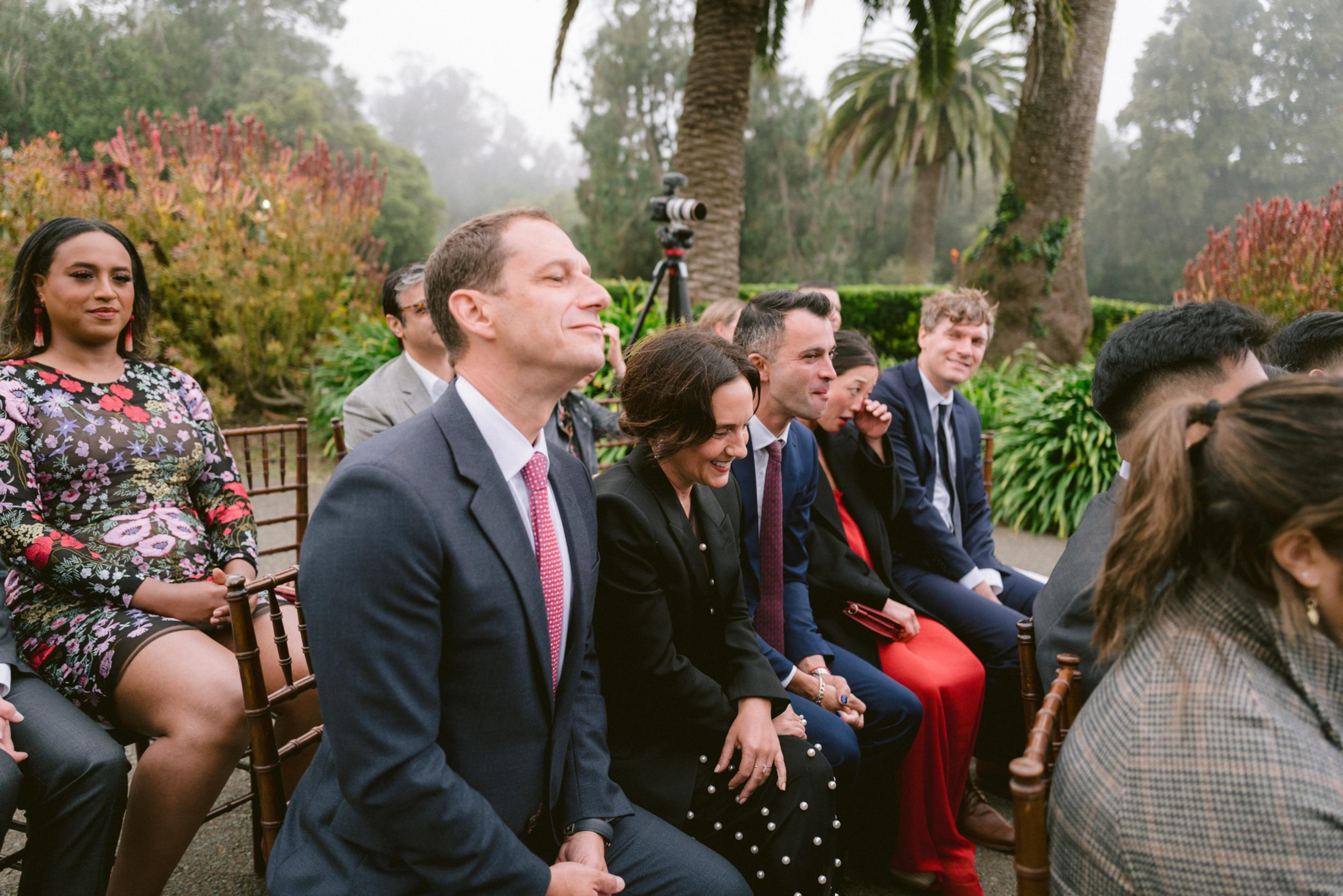


Mahmood didn’t let the campaign affect the courtship. At one point, he spent hours searching for activities she might enjoy, based on their conversations, then texted Wu a menu of options: build a chicken coop at a regenerative farm, comedy show and dinner, or a concert in the park. “He was clearly listening to me and then coming up with not just one good date idea but five,” she said.“It was so thoughtful and sweet.” (She chose the chicken coop.)
They talked about marriage — Wu had been clear from the start that this was her goal — and Mahmood was onboard, but they wanted to wait till the election was over. He won his campaign Nov. 5.
A month later, during a trip to Japan, Mahmood proposed near Mount Fuji. The bridge he’d scouted was unexpectedly closed, so he pivoted to a path nearby. He presented Wu with the ring she’d designed at No. 3 (opens in new tab) in Nob Hill, featuring a sustainably made, lab-grown diamond sourced from Vrai (opens in new tab) in Hayes Valley. “They use sequestered carbon, so it’s energy-negative,” said Wu, holding out her hand. “That was important to me.”

They married Aug. 16 at the Conservatory of Flowers, standing inside a circle of guests, in a ceremony officiated by City Attorney David Chiu. They modeled the setup from weddings at the Legion of Honor. “You feel surrounded by love,” Wu said.
Before the ceremony, a San Francisco Symphony quartet covered Taylor Swift and Coldplay. Mahmood walked to the main theme of “Star Wars”; Wu to Pachelbel’s Canon. Mahmood wore a custom tux tailored by Josh Djafari (opens in new tab), its red lining a nod to Wu’s Chinese heritage. She wore a Mark Ingram strapless gown from Marina Morrison (opens in new tab), the wedding boutique that has operated in FiDi since 1985, with a silky tulip skirt and train.
“You unlocked a part of [me] I didn’t think was possible,” Mahmood told her. The emotions “felt like gifts.”

The palette of the wedding was green and white. The tables bloomed with edible centerpieces: artichokes, chayote, grapes, moss dotted with whimsical mushrooms — a wink to Wu’s “granola” leanings, Mahmood said. Guests took produce home; one sent photos of salsa made from the centerpiece.


Dinner mixed cultures and comfort: steak and mashed potatoes for her; Pakistani dishes for him, and dairy-free kheer for dessert. Between courses, the maid of honor and best man ran musical chairs with prompts like “Find someone who voted for Bilal,” turning the room into a civics scavenger hunt.

Their first dance, choreographed by a friend who leads free Zumba in the Panhandle, was to “Lucky” by Jason Mraz. “We learned how to work as a team,” said Wu. “I have the rhythm. He remembers the sequence. We cover for each other.” (They reprised the dance on their honeymoon in Sorrento, Italy.)

Later that night, Mahmood surprised her with a choreographed Pakistani ensemble dance performed with his groomsmen, including District 3 Supervisor Danny Sauter, rehearsed hours earlier in their Airbnb.


The next milestone is domestic rather than civic. They’re packing up their apartments — hers in the Mission, his in the Tenderloin — to move to a shared place in the Tenderloin. “It’s close to Philz, a BART line, and a movie theater,” Mahmood said, and close to where Wu’s parents first landed after immigrating from China.
And further on the horizon: kids, perhaps sooner than later, and maybe a dog, too, when their schedules loosen. “I have a cap on how long I can spend with someone before I get restless,” Mahmood said, “but there’s no cap with her.”
